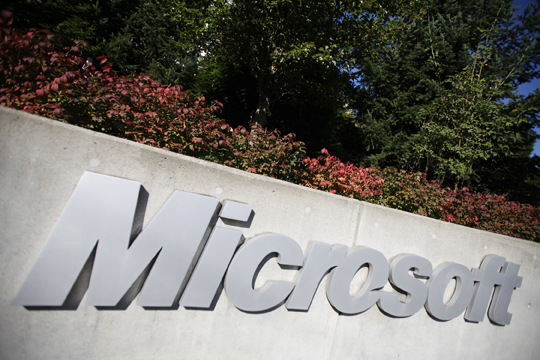Investing
Tuesday newspaper round-up: Microsoft, Spain, Co-op Bank

Microsoft to buy Nokia’s mobile phone unit; private equity groups circle Spanish lender; Co-op Bank loan value ‘deficit’ grows to £3.6bn.
Microsoft is to buy Nokia’s mobile phone business and license its patents for 5.44bn euros (7.2bn dollars), in an all-cash deal that will reshape the telecoms industry on two continents. The US company will pay 3.79bn euros for “substantially all” of Nokia’s phone unit and 1.65bn dollars to license its patents, in a big bet from Steve Ballmer, Microsoft’s outgoing chief executive, that the Finnish group’s mobile devices can rival those of Apple and Samsung Electronics, the Financial Times says.
Private equity groups are close to acquiring part of one of Spain’s nationalised lenders in what would be the first significant foreign investment in the country’s banks since the financial crisis, the Financial Times reports.
A good August for shopkeepers has added to the growing weight of evidence that confidence is returning to the high street. Retail sales rose by 3.6% last month, or 1.8% excluding new stores and closed stores, according to the British Retail Consortium. The good cheer even spread as far as furniture stores, which suffered a dire 2012, according to The Times.
British military chiefs are being ejected from US meetings about Syria in the first direct consequence of David Cameron’s refusal to join military action. The role of senior British officers based at US Central Command in Tampa, Florida, has been downgraded because they cannot be trusted with high-level intelligence about a conflict with which they are no longer involved, military sources say, The Times reports.
Co-op Bank is facing a £3.6bn gap between the value it places on its loan portfolio and what they would be worth if it had to offload the book, it can be disclosed. The struggling lender downgraded the “fair value” of its loan book by £4.2bn between the end of last year and June, wiping nearly 13pc off the value of its £29bn portfolio, The Daily Telegraph writes.

Why Life Insurance Still Matters – Even During a Cost-of-Living Crisis
Sponsored by Post Office
British exporters face jitters in oil-rich sheikhdoms in the Persian Gulf after the Parliament’s failure to back military intervention in Syria, experts are warning. Gulf Arab states such as Saudi Arabia, the United Arab Emirates (UAE) and Qatar, which either oppose the Syrian government or are actively supporting the opposition, are among the UK’s top 50 export markets, The Daily Telegraph points out.
Small businesses barely benefited from the Bank of England’s Funding for Lending scheme in its first year of operation as most of the gains went to mortgage borrowers. Official figures showed that the 41 banks signed up to the FLS increased lending in the three months to June by £1.6bn, but it was not enough to offset the £3.9bn of withdrawals over the previous nine months. The rise in the second quarter was entirely accounted for by “lending to individuals”, particularly in mortgages, the Bank said, according to The Daily Telegraph.